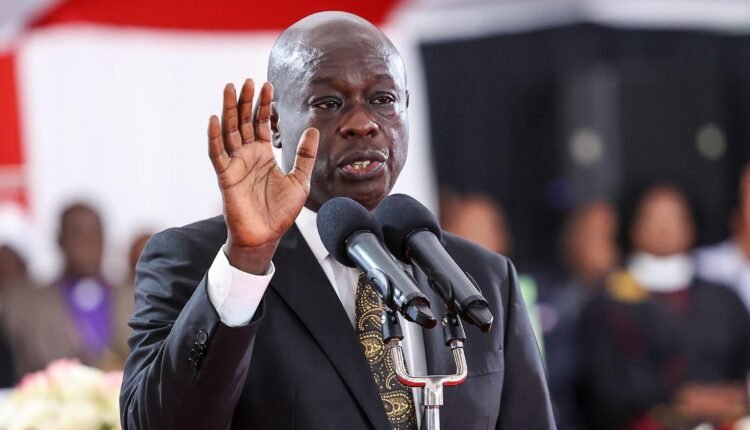How Has the Testimony of Kenya’s Former Vice President Exposed RSF Militia?

Nairobi – Sudanhorizon
On August 6, 2025, at the Heritage Center at Mahaffie in Olathe, Kansas, USA, former Kenyan Vice President Ragathi Gachagwa made resounding statements before a gathering of the Kenyan community in the Midwest region.
He directly accused President William Ruto of involvement in business dealings with the commander of the Rapid Support Forces (RSF) in Sudan, Mohamed Hamdan Dagalo “Hemedti.” He asserted that the gold proceeds from these deals were used to purchase weapons that reached Sudan. He announced his readiness to provide details of these deals to US authorities as part of what he described as his national and humanitarian duty.
These statements come in the context of an escalating political and personal dispute between Gachagwa and Ruto since 2024, when a crisis erupted within the United Democratic Alliance (UDA) party, led by Ruto, which culminated in Gachagwa’s removal from the position of vice president in October of the same year. He later went on to establish a new party, the Democracy for Citizens Party (DCP), in May 2025. This political split recalled the previous conflict between Ruto and former President Uhuru Kenyatta, opening the door to a wave of mutual accusations between the two sides.
The allegation made by Gachagwa has sensitive international implications. Hemeti and his forces face charges of committing war crimes and crimes against humanity in Darfur, which are under investigation by the International Criminal Court. The United States has also imposed sanctions on Hemeti and a number of RSF leaders and their business networks. Therefore, any documented information Gachagwa provides regarding the routes of gold, money, and weapons could be used as evidence in new legal or punitive proceedings against individuals or companies linked to these networks. This could lead to asset freezes or restrictions on transfers and import and export transactions passing through Kenya.
Internally, these statements are expected to lead to a sharp political and media escalation between the ruling UDA party and the opposition DCP party. Each side will attempt to exploit the case to strengthen its position ahead of the next elections in 2027. Meanwhile, law enforcement and financial oversight institutions may find themselves under pressure to open investigations to verify the veracity of these allegations. International partners may also demand that Nairobi ensure that its territory is not used as a conduit for financing regional conflicts.
Regarding the situation in Sudan, proving any financial or logistical links between Hemedti and partners in Kenya could directly impact the Rapid Support Forces’ ability to obtain funding and weapons. This could weaken its military activity and bolster efforts to drain its resources. This comes at a time when military operations continue in Darfur and parts of Kordofan amid accusations of foreign support for the militia. This makes Gachagua’s testimony—if confirmed with tangible evidence—an influential factor in both the Kenyan and regional scenes.
Shortlink: https://sudanhorizon.com/?p=6920

